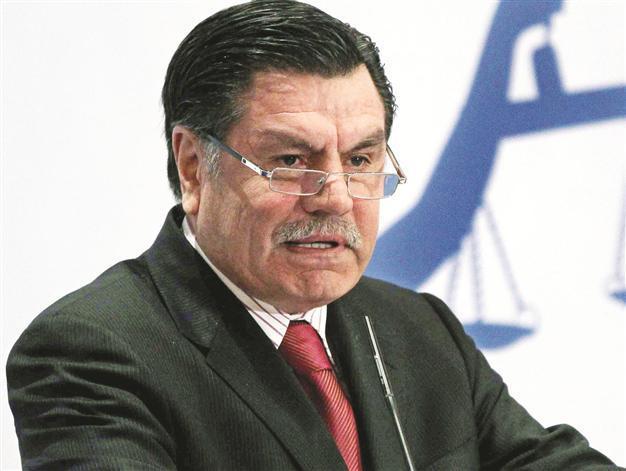Top judge warns against illegal proof collecting
ISTANBUL

Top judge Kılıç slams illegally collected evidence use in a recent case. AA photo
Courts cannot base their rulings on illegally collected evidence, Turkey’s top judge has reiterated following recent acquittals in a high-profile case that failed due to the illicit collection of such material.“Evidence that was gathered illegally cannot be used. Other evidence should be considered,” Constitutional Court head Haşim Kılıç was quoted as saying by daily Milliyet on Dec. 21.
“For example, a judge has to decide in a court ruling on wiretapping and other types of technical surveillance. A prosecutor might allow it for urgent situations, but it still needs a court ruling within the following 24 hours. Evidence gathered without following such a procedure is not legal,” Kılıç added.
His remarks came days after the Supreme Council, the name the Constitutional Court takes when it tries ministers and senior members of the judiciary, acquitted 15 suspects in a bribery case on the grounds that some evidence was not collected through lawful means and that the available evidence was not sufficient for their conviction.
Although Kılıç was among the four judges who voted against the decision, he is still against the use of illegally obtained evidence.
“The disagreement in that particular case was not about the content of the evidence, but whether the Justice Ministry investigator that led the probe and asked for permission to wiretap had the authority,” Kılıç was quoted as saying. “Three other judges and I said he was authorized and the evidence could be used, but the majority disagreed. Hence, the evidence was not taken into consideration.”
When asked whether the Supreme Council’s decision could set a precedent for other trials, such as the Ergenekon and “Balyoz” (Sledgehammer) cases, whose suspects have long complained about illegally recorded conversations being used as evidence, Kılıç said it was not binding for trials in progress.
“Our ruling is about criminal cases that come to the Supreme Council,” he said. “Each case should be considered separately.”
















